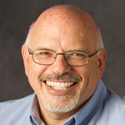

Question and Answer
Why couldn't Esau find repentance for what he had done? Was his heart hardened beyond repair, or was his motive unforgivable?
Your question is based on Hebrews 12:17 which says of Esau, “For you know that even afterwards, when he desired to inherit the blessing, he was rejected, for he found no place for repentance, though he sought for it with tears” (NASB). Other translations make it sound as if Esau sincerely sought repentance and could not find it because he was rejected by God. But that’s not the meaning of the verse.
The Greek grammar allows two possible antecedents for the word “it.” In English we look for the previous noun to match the pronoun. That’s not how the Greek works. Although the antecedent to “it” could be repentance, it is more likely that what Esau sought for with tears was his father’s blessing. Esau had repented not about doing wrong but only about selling the birthright to his brother. This interpretation is supported by the Genesis account. After Isaac gave the blessing to Jacob, Esau begged his father with tears. Hebrews 12:17 is alluding to Genesis 27:38: “Esau said to his father, ‘Do you only have one blessing, my father? Bless me too, my father!’ And Esau wept loudly.”
Several modern translations capture the nuance of Hebrews 12:17, but the NIV perhaps does it best. It reads, “Afterward, as you know, when he wanted to inherit this blessing, he was rejected. Even though he sought the blessing with tears, he could not change what he had done.” If Esau truly wanted to repent of his sin, God would have responded with mercy and grace, just as He will for us. As Psalm 51:17 says, “a broken and contrite heart you, God, will not despise” (NET).




